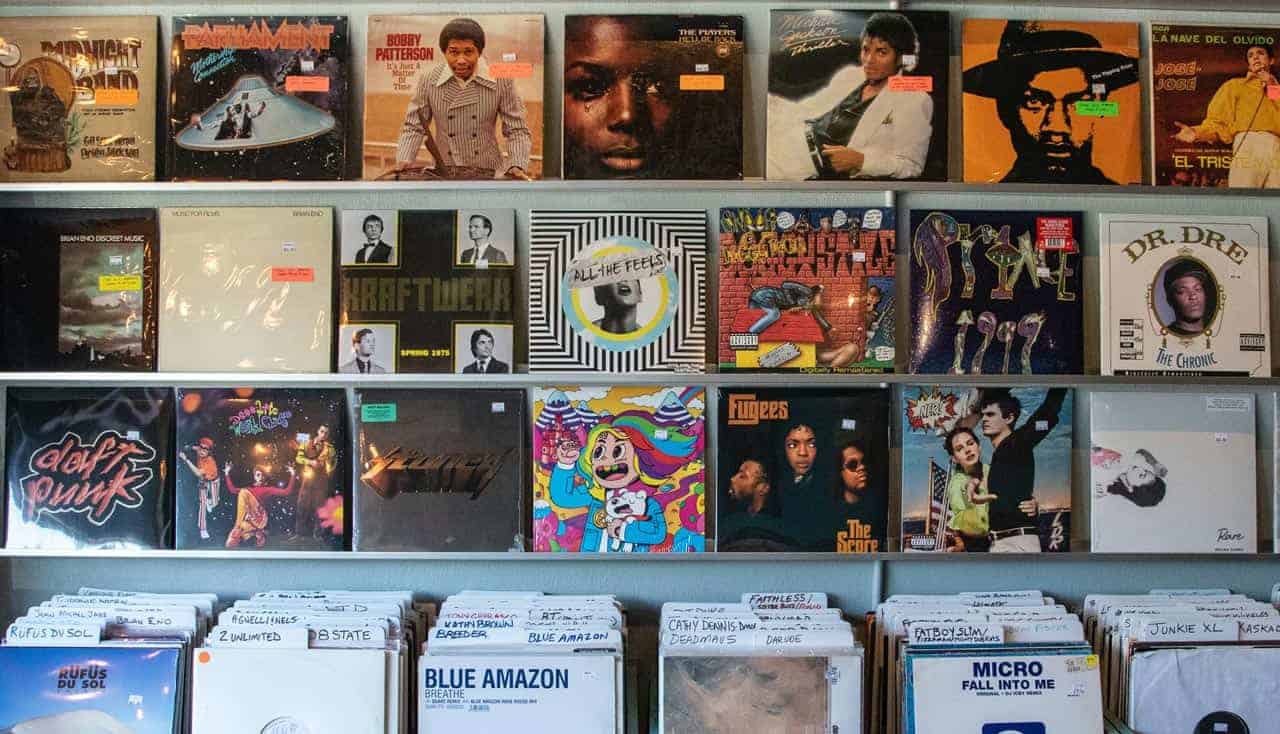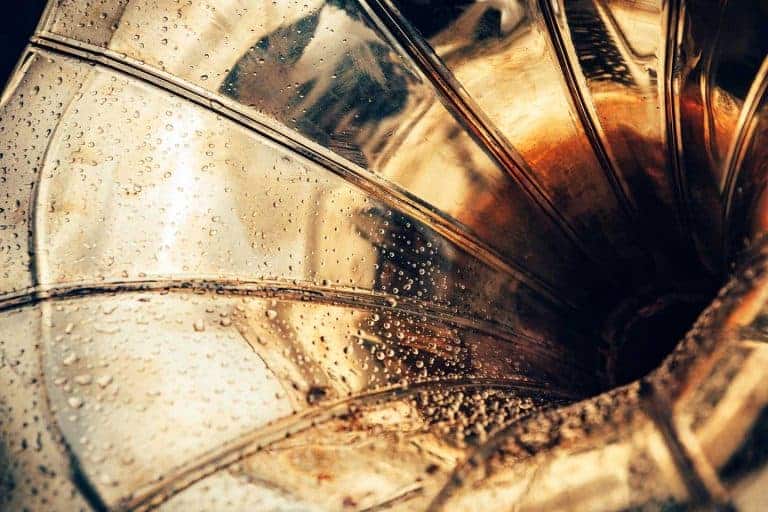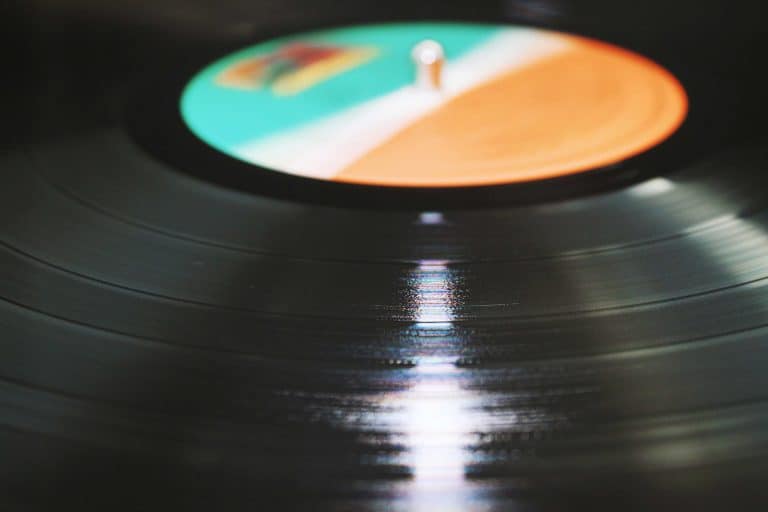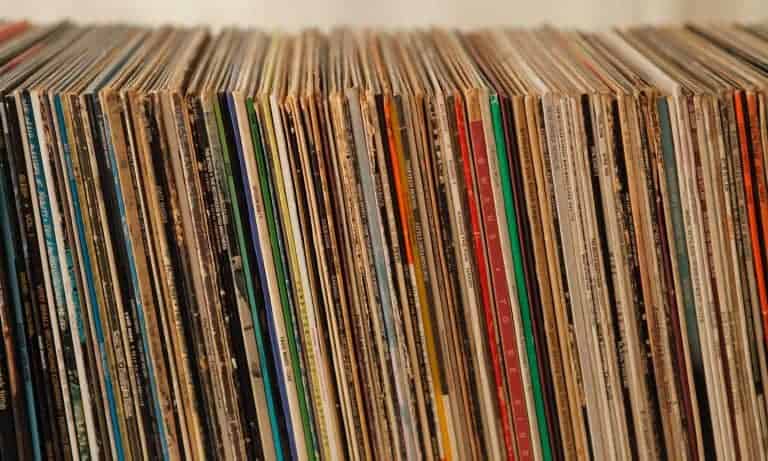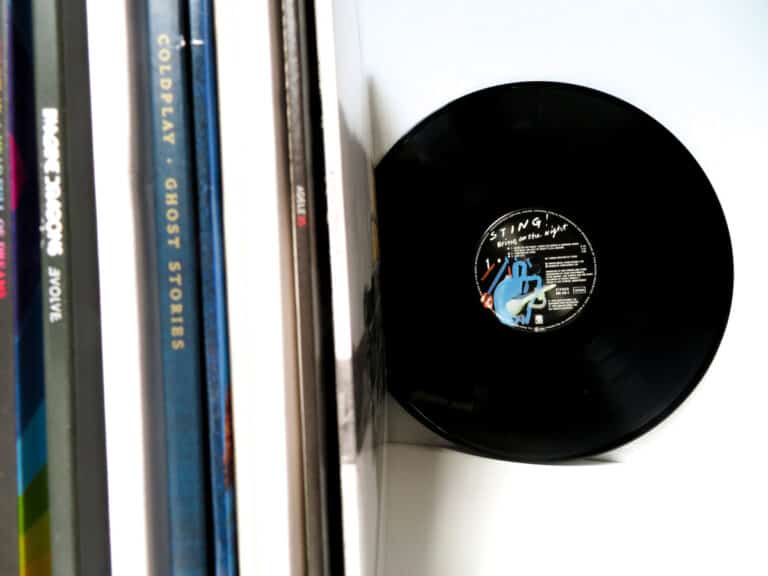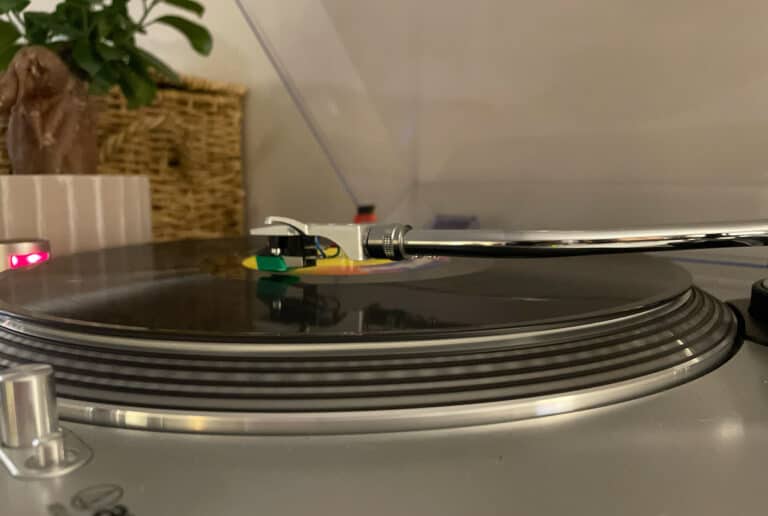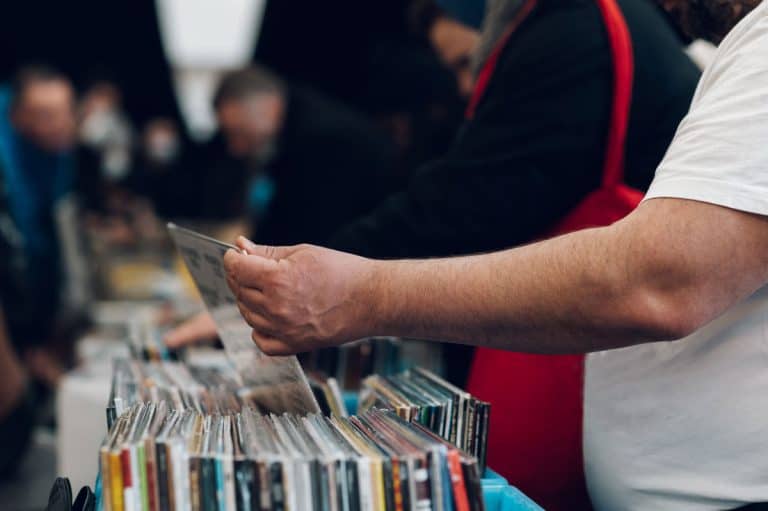Why Are Records Better? Does Vinyl Sound Better Than Digital?
Vinyl represent timeless music and a different listening experience than other audio formats. From their cultural and historical significance to the nostalgic feelings they bring, even young listeners – who do not have the same connection as their parents or older siblings – listen to vinyl records. But what makes them better than the rest?
Why are records better? Vinyl records are better because they produce an experience and sound better than other formats. Purchasing and owning a physical record supports the artists more, gives the collector a piece of artwork, and gives the collector a better-sounding music experience.
How Are Vinyl Records Better Than Digital Music?
Some people believe vinyl is complicated, expensive, and inconvenient, yet people still love it, and according to the Recording Industry Association of America (RIAA), vinyl record sales increased by 30% in 2020.
But, why?
With all the limitations, what qualities are vinyl offering to make people switch over?
Per statistica.com, people within the age bracket of 24- 35 are as likely to buy vinyl records as people in their 50s.
Maybe it’s because, with vinyl, you are actively engaged in the listening process? Or perhaps it’s the quality of the sound?
The revival of vinyl is a testament to its superiority because it has its distinct sound and quality.
When you are looking for something natural or warm with an allure and charm that sucks you in, some people prefer the experience of lining the record up, placing the needle, kicking back, and enjoying the music.
The allure of music you can physically touch, hold, and value.
Below we’ll go over some of the stand-out qualities that vinyl offers to listeners.
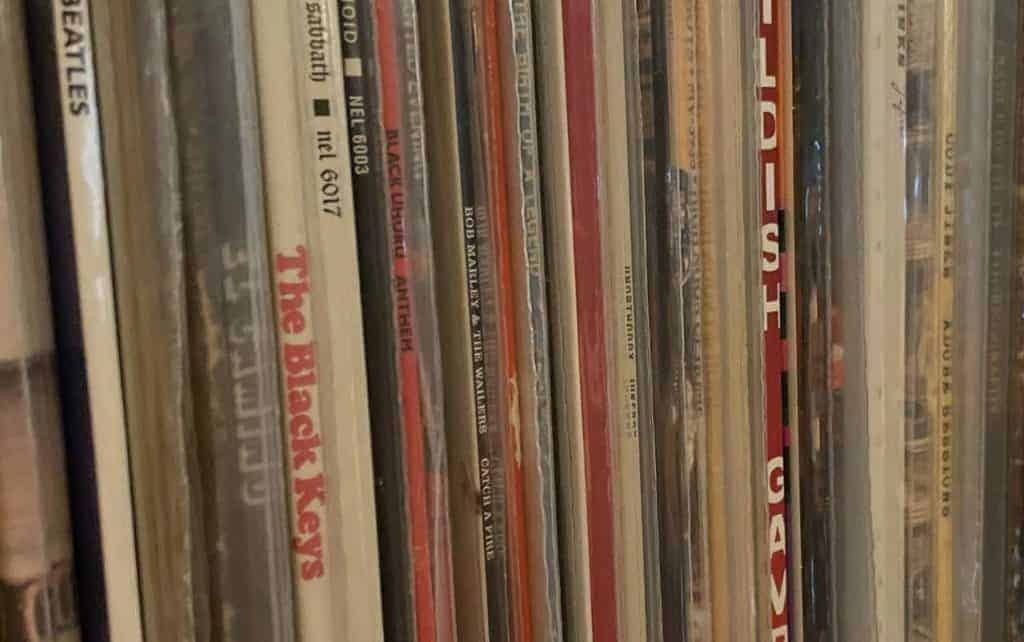
Does Vinyl Sound Better? How’s The Sound Quality?
Yes! Vinyl sounds better because vinyl reproduce sound well and produce high-quality vintage sounds that have depth and texture. There are no distortions when louder sounds are played with vinyl. Instead, they have a warmer, more prosperous, and deeper sound, and no details are lost in the process of recording.
Vinyl is the only physical format that is analog lossless. This allows for much more detail and warmth to be heard if you have a decent quality stereo setup.
Vinyl Records Are Warm
Any sound that makes you feel calm and at peace with yourself is considered warm.
Warmth in music involves adding low/mid-range harmonics to low frequencies to create slight distortions that give it more character. For example, a vinyl record emphasizes mid-range sounds and creates a warm and fuzzy feeling.
Warmth refers to the sound qualities that are carried through the material.
Because many digital recordings are made with so many digital processes, the many gears used to collect sound will create a wide range of frequencies that will not accurately reflect the pure sound.
Some people say warmth is as if the sound can breathe and has a nice flow instead of sounding sterile and sharp. Some describe warmth as a sound you can hear: the calmness and the peace flowing from the record that produces a pleasing sound to the human ear that our brains enjoy.
Vinyl is recorded and stored in pure analog signals and tape recorders at low frequencies (soft and warm), which are pure. This warmth is not present in other audio formats because they add more frequencies to their sound.
The added frequencies are often not natural; hence, affecting the warmth of the music.
Vinyl Records Present Music in Its Purest Form
Music stimulates the senses, and the mind plays a role in how we perceive it.
The analog vinyl format does not compress a song. Instead, it is continuous without breaks in the signal or any interruptions. Since vinyl are uncompressed and analog they offer some of the best audio recordings.
As a result, the record contains more information and improves the listening experience.
Vinyl Records Use Analog Gear To Record Signals
The tape has a natural compression quality, and this is important because it reduces distortions and eliminates clippings.
Analog gears also use tube preamps to get a full range of frequencies instead of creating higher frequencies and making them louder like modern speakers and headphones.
Vinyl Records Have a Unique Richness
When we are talking about the richness of vinyl, we are not referring to the quality of having high intrinsic value. Instead, we are talking about the sensation of fullness and mellowness that echoes through the halls. The sound that leaves an impression on you forever.
Music has many diverse auditory aspects, and vinyl sound is more open, which allows a more pristine quality of the different features of music to be heard. Even when compared directly to the highest quality digital recordings of the same songs, vinyl offers more sound and clarity. Your biggest limitation is in the equipment as the format offers a huge range.
There are changing patterns in music, and the groove is the effect of such patterns found in various genres such as pop, jazz, rock, soul, funk, etc.
Now, because vinyl has not been compressed, the sound is more open, and more features are heard. In addition, the grooves have space that makes it possible to identify and locate particular patterns, sounds, rhythms, and instruments that make up the music, thereby encompassing the whole song.
These qualities are probably why the groove’s etymology came from vinyl because the phonograph needle physically rides the track in a vinyl record.
As a result, the vocals of a vinyl record are closer to the initial recording, and communication of sound data is accurate.
Vinyl Records Have Depth
The depth of the record determines the resonant quality of these properties and how they are perfectly integrated and heard.
There are no sound limitations in vinyl because there are no compressions and because of the presence of grooves in a physical format.
In contrast, other formats have to manipulate depth with loudness, brightness, etc., to make them sound closer for these properties to be heard. These adjustments are usually done via a sound engineer mixing.
With vinyl, you can listen to palpable harmony notes that enhance the melody.
Check out this video below for a real-time comparison in vinyl and digital music:
Vinyl vs Streaming – Which Has The Superior Sound? The Digital Debate
Most people enjoy streaming music and we get that, we love it too! There is something to be said about the convenience of just opening an app and hitting play when you’re otherwise busy. Our goal here is not to start the war that is common in the music war on this exact topic.
When comparing vinyl vs streaming everyone has their own preferred method and format. We prefer vinyl given the correct equipment is used for listening to the record. If you just have some headphones then vinyl obviously will not be the best format for you. The best way to look at this is that vinyl sounds better but confines you to your home and budget where streaming sounds acceptable and allows you the freedom to listen from anywhere. So if you plan to read ahead just know we are going into VinylBro nerd mode! Seriously you have been warned…
This really goes both ways. You can have the highest quality digital format and cheap headphones and you likely would be able to tell the difference between FLAC or 256 MP3. Your actual setup does affect the end experience.
At the end of the day what really matters is that you are listening to an artist’s music legitimately. If that’s with vinyl you purchased or music you are streaming from a legitimate streaming service the goal is to support the artist.
We understand that sometimes you still want to know more so we are going to break down a few specific streaming services.
Does vinyl sound better than Spotify?
When it comes to streaming Spotify has a massive market share and following. Following or not, how does it compare to vinyl?
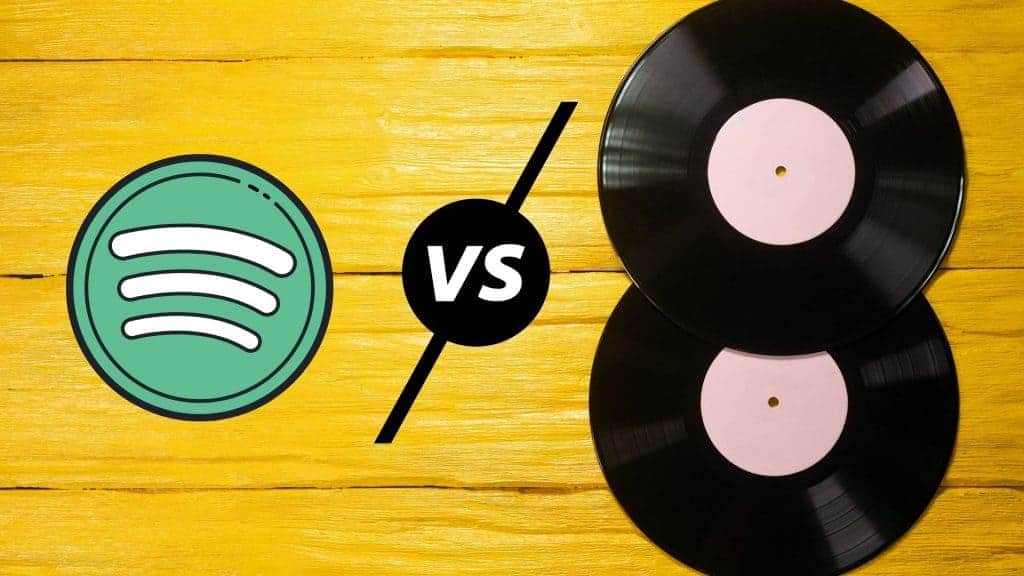
Spotify’s normal streaming mode streams in a lower bit 160kbps which most audiophiles would tell you is not great. The minimum for “Good” quality streaming or listening is 320kbps which you have to enable in the premium settings.
So when asked “does vinyl sound better than Spotify?” We always say yes. 320kbps streaming at the highest quality falls flat in the audiophile world. The sound is literally flat and it’s hard to distinguish individual sounds and instruments from one another.
Does vinyl sound better than Apple music?
Apple recently announced it is bringing its lossless format to the full catalog of music it offers in its streaming service which is a big upgrade from the common 256kbps or 320kbps. How does it compare to vinyl?
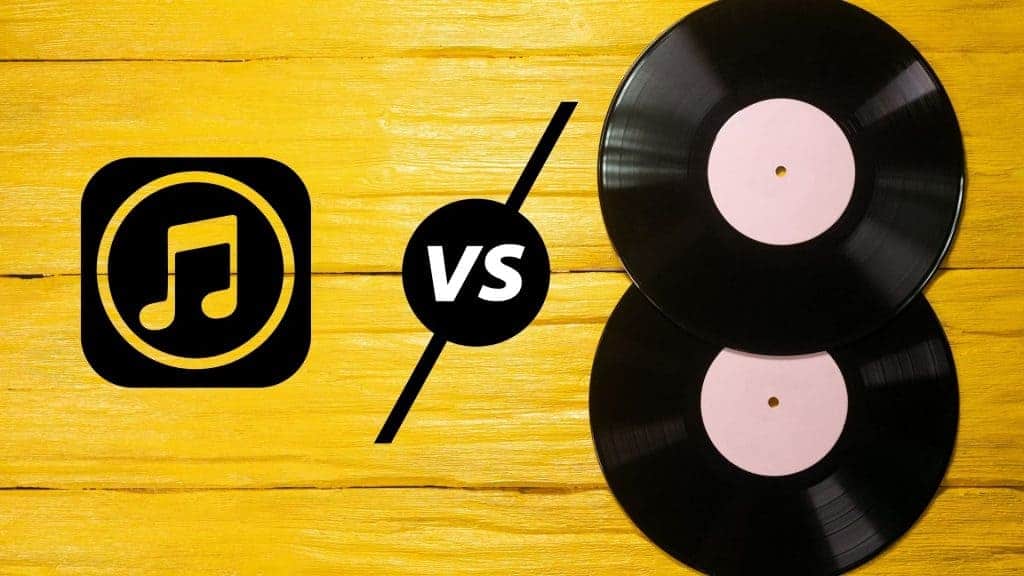
So what we are really comparing here is lossless format vs vinyl records. This is kind of a funny comparison due to vinyl being analog lossless and lossless streaming is a lossless digital format. Technically speaking there is no difference between them outside of your standard warmth and physical presence and experience.
So does vinyl sound better than Apple Music? Our answer is yes due to the warmth a record and analog recording brings to the table. We also believe that the ritual of physically picking your album and playing it is pretty hard to replicate with streaming.
Out of the streaming services currently available we prefer Apple Music and use it as our streaming provider at VinylBro. Since they offer such a large catalog of lossless it is really the best of both worlds when you have to stream.
Advantages of Vinyl Records and Record Players – That Analog Sound
A vinyl record uses analog technology when recording because analog sounds are more natural and provide a more accurate recording.
Analog recordings will capture changes in air pressure, making the sound more natural, not to mention the unlimited bandwidth.
Audio bandwidth is the range of sound frequencies that an audio system can deliver and its ability to be reproduced at different resolutions.
Think of the bandwidth in terms of a picture; when you enlarge a low-resolution image, after a while, the picture will become challenging to see clearly, whereas a high-resolution photo remains clear.
In terms of audio, an analog recording can move to a higher resolution without breaking or losing its original sound quality.
Some people consider vinyl to be too bulky and inconvenient. Even though this is true, music as a whole is an experience and not just about convenience.
Here are some of the most significant advantages of vinyl records.
- Vinyl has big sleeves for artistic expression. An excellent visual representation creates a first impression about the sound and will affect how someone perceives and forms opinions about the music.
- Vinyl is more accurate. Analog sounds are more accurate because they capture clear signals and natural changes in physical terms such as sound, light, temperature, pressure, and position.
- Editing limitations of vinyl is a plus. Editing limitations will discourage tinkering and procrastination and encourage first-time recording excellence.
- Ease of recording. Working on physical hardware and equipment makes recording more effortless, and extensive sessions won’t slow down recording sessions. Also, analog signals are more accessible to process than the other formats, which processes signals at high speeds, consuming more energy.
- Less sensitive when it comes to electrical tolerance. One of the primary tapes used in electrical applications is vinyl, and this is because it is suitable for insulation purposes.
- Great for audio and video transmission. Vinyl has a higher density with more refined information and are best suited for audio and video transmissions.
- It remains true to the original sound. Vinyl makes it difficult for record company executives focused on profit rather than sound to mess with by creating generic sounds.
- It encourages active listening. With vinyl, you rely on ears to know what sounds good rather than on sound waves on a computer screen. Instruments are placed strategically at various positions of the sound field, which affects the timing, volume, and frequency of the sound.
However, to retain its high quality, you should carry out adequate maintenance because vinyl is susceptible to damage from dirt, dust, mildew, moth, etc.
Do Artists Make More Money From Vinyl? Supporting The Artist
At the end of the day, we all want to support the artists so they keep making great music. That’s why it’s important to pay for streaming or purchase physical albums such as vinyl.
With that said the artist does make more money from the purchase of a vinyl record. This may or may not be important to you but here at VinylBro we do think it’s important and for that reason, we believe it’s another win for the vinyl records being better.
Storing Vinyl Records
One of the critical issues with vinyl records is their storage. They take up a lot of space and need to be stored in a certain way to maintain their integrity.
If you don’t store your vinyl records the right way, you run the risk of ruining not only their sound quality but their ability to play at all.
Proper storage will include:
- Using shelves to keep them upright
- Keeping them off the ground
- Storing in a climate-controlled room
- Using sleeves to protect the records
- Never stack your vinyl records on top of each other
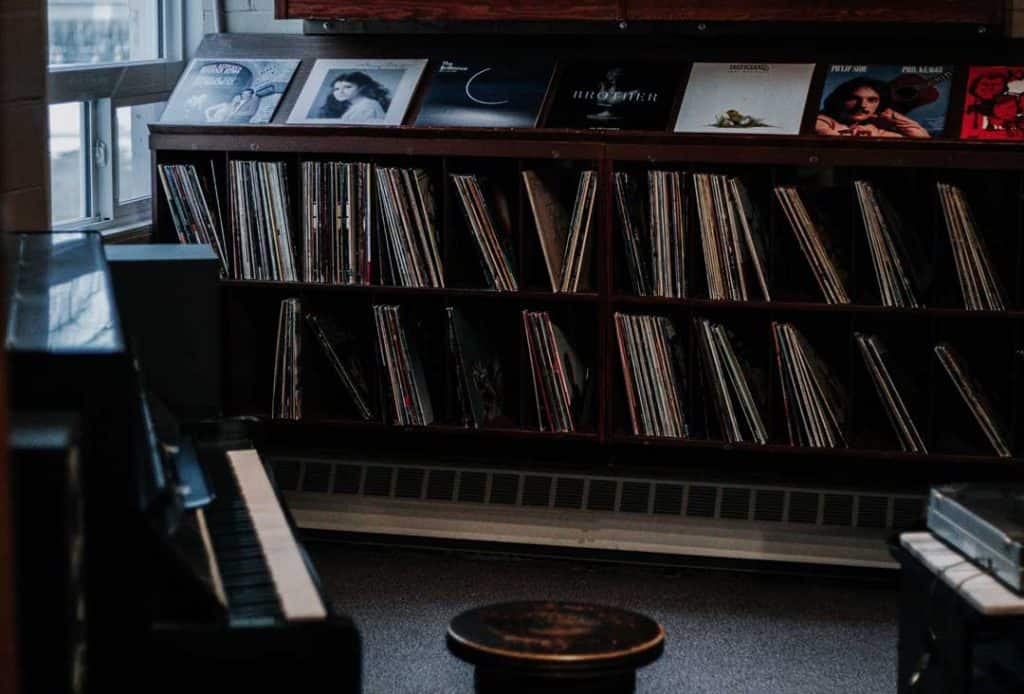
Stand Them Upright
Vinyl records need to be stored vertically, standing upright rather than lying flat and stacked high. This is because if you stack them up, the weight on the lower records is likely to cause warping, which will make them unplayable.
It will also encourage airflow, which will help to prevent dust and mold from forming on the surface.
Keep Them Covered and Dry
Not only should you keep your vinyl records in their sleeves, but you should also aim to keep them in a climate-controlled environment.
Exposure to extreme weather conditions, such as high humidity or freezing temperatures, like you may find in a garage, will cause them to warp and possibly even crack if they get too cold.
Check out this post for more details on how to store vinyl records the right way.
Why Are Records Better? Our Conclusion
Vinyl makes you more involved in the listening experience because it has a life-like quality and offers you a more extraordinary listening experience, from the act of putting a record together to sitting back to enjoy it. Vinyl Records are about the experience.
Sources – Differences Between Vinyl And Digital
- RIAA: Year-end 2020 RIAA Revenue Statistics
- Apple Music announces will bring Lossless Audio to the entire catalog
- Statista: Distribution of New Vinyl Records in the US by Age Group
- Aesthetics for Birds: Why Vinyl is Better Than Digital
- Business Insider
- YouTube: Real Engineering
- CNET: Why Do LPs Sound So Good?
- Howstuffworks: How Record Players Work
- Wikipedia: Phonograph record
Frequently Asked Questions About The Vinyl Experience
Why do some people believe that vinyl records are better than digital formats?
Some people believe that vinyl records offer a warmer and more authentic sound compared to digital formats, which enhances the overall listening experience.
Can vinyl records actually sound better than digital counterparts?
Yes, many audiophiles argue that vinyl records can provide better sound quality, particularly in terms of dynamic range and audio richness compared to digital music formats.
What sets vinyl records apart from digital media?
Vinyl records are favored by many music enthusiasts for their unique sound characteristics, tactile experience, and the nostalgic ritual of playing records on a turntable.
Why do people prefer vinyl over digital formats for listening to music?
Vinyl records appeal to music lovers due to their warm sound, superior audio quality, and the tangible connection to the music through owning and collecting physical records.
How does the audio quality of vinyl compare to digital formats like CDs and digital files?
Vinyl records are often perceived to have a more organic and authentic sound when compared to the digital audio found in CDs and digital files, such as MP3s. Many consider this overall sound is better for vinyl as opposed to digital.
Is it true that vinyl records provide a better sound than MP3 files?
Many enthusiasts believe that vinyl records sound quality is better than MP3s, attributing it to the analog nature of vinyl and its ability to capture the nuances of favorite music.
What are the reasons why vinyl is considered to sound better than digital formats?
The warm and rich sound of vinyl, coupled with the physical act of playing records, contributes to the perception that vinyl provides a superior listening experience than digital counterparts.
What makes vinyl better than digital media for music enthusiasts?
Vinyl’s unmistakable sound quality, the ritual of playing records, and the experience of collecting vinyl records make it a preferred choice for music enthusiasts over digital media.
How does the sound of vinyl records compare to its digital counterpart?
Vinyl is often praised for its warm and dynamic sound characteristics, making it a popular choice for those who appreciate a richer and more immersive audio experience compared to digital files.
Why do vinyl enthusiasts love collecting and playing records?
Vinyl enthusiasts are drawn to the tactile nature of actual vinyl, the nostalgic appeal of playing records, and the belief that vinyl offers a better sound quality and listening experience than digital formats.

